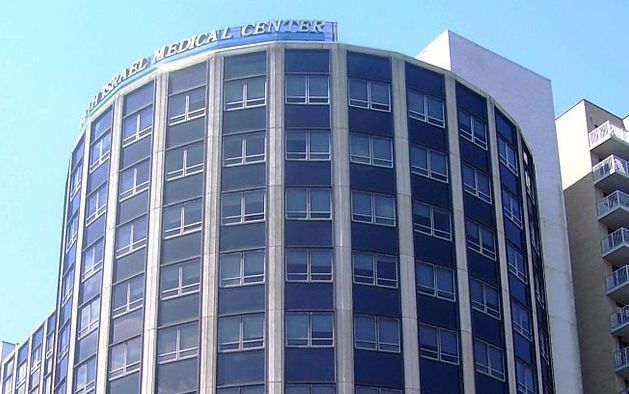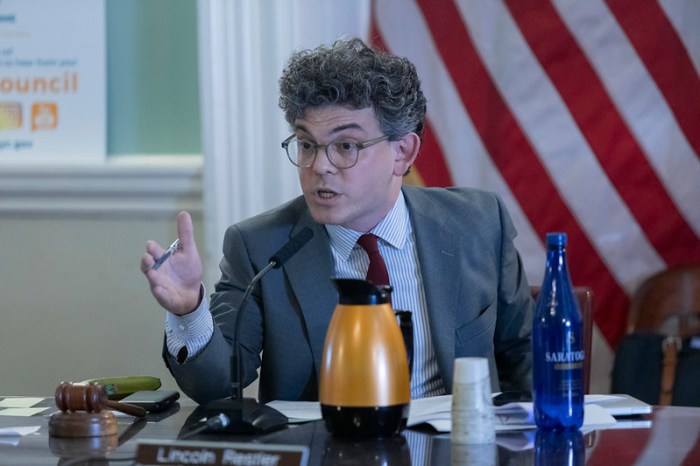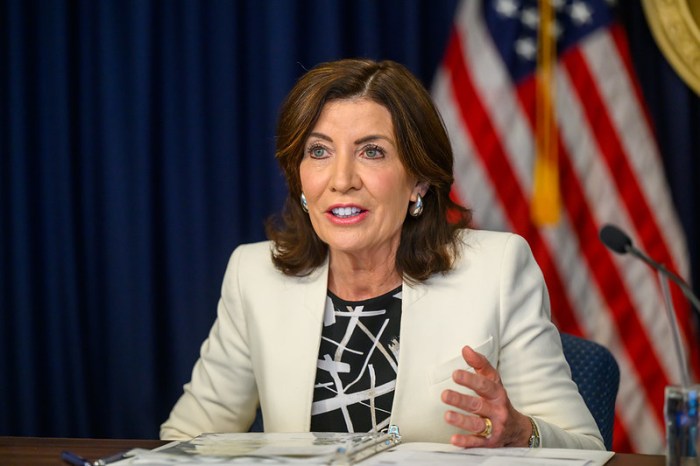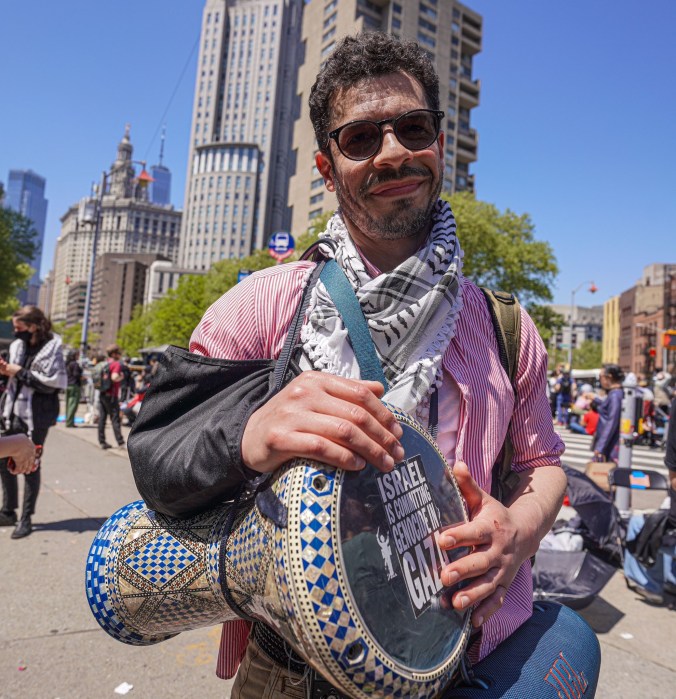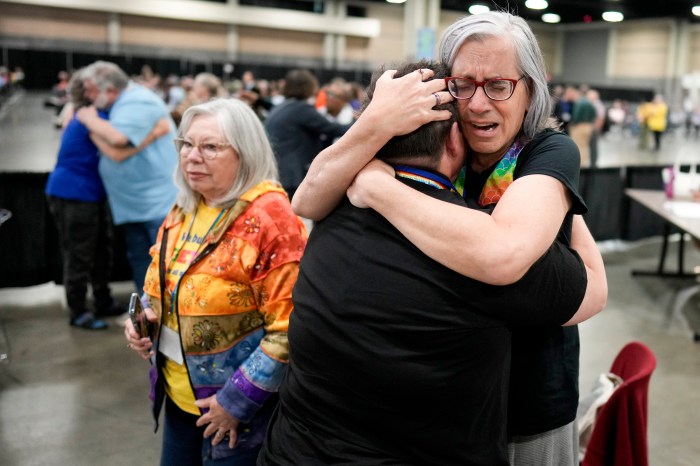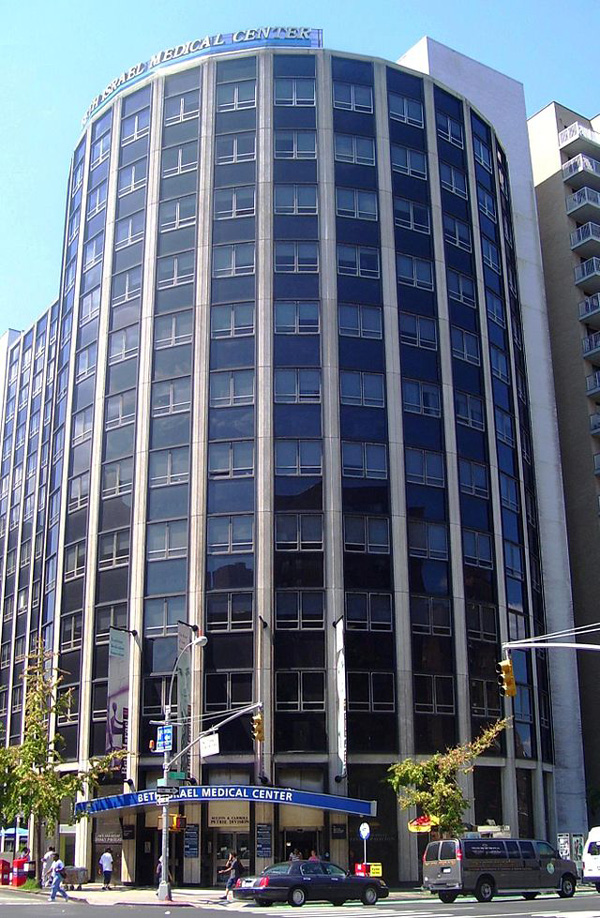
BY LINCOLN ANDERSON | Nurses from Mount Sinai Beth Israel made emergency calls to The Villager on Tuesday.
It wasn’t to provide medical care — but rather to let the newspaper know what they say is already a done deal: that the historic hospital will close, and “sooner rather than later.”
Official word may come extremely soon, the nurses said.
“They are going to make a big announcement before the end of the month,” one of them said. “We anticipate this is coming next week.”
The closing of St. Vincent’s Hospital in 2010 is still being viscerally felt on the Lower West Side. It’s almost unfathomable then, that so soon afterward, the Downtown area could now also lose Beth Israel, its lone remaining large hospital.
Beth Israel was founded by a group of 40 Orthodox Jews on the Lower East Side in 1890. It has been located on Stuyvesant Square since 1929. It merged with Mount Sinai in 2013, after which it became known as Beth Israel Mount Sinai.
Last June, as The Villager first reported — based on the tip of a concerned reader who heard it from his doctor — hospital officials were telling staff that the Beth Israel campus would be sold and that the hospital would be rebuilt nearby. In a way, it all sounds a bit similar to what happened with St. Vincent’s, where ambitious plans to build a new state-of-the-art hospital tower fell through, shortly after which St. Vincent’s closed under a mountain of debt.
According to three veteran Beth Israel nurses who contacted The Villager this week, hospital administrators kept up the rebuilding mantra until a couple of months ago — when the narrative abruptly shifted dramatically, and it was learned that the place would be shuttered for good. Now, no one is saying much at all.
“Suddenly, it’s gotten very quiet,” one of the nurses said.
There are monthly meetings of top hospital officials and staff, which are attended by some of the nurses. Recently, at one of these meetings, it was revealed that Beth Israel, in fact, would be closing. The news quickly spread among the rest of the nursing staff.
All three nurses who contacted The Villager have worked at Beth Israel for about 20 years, and all spoke on condition of anonymity. They said Mount Sinai has told them they will be given jobs in the health network’s other locations, so they don’t want to jeopardize their future employment. Mount Sinai has been strongly warning staff not to talk to the press about the closing, they said.
The first nurse to call said she decided to reach out to The Villager because the newspaper broke the story last year on the hospital’s rebuilding plans.
“They’re going to close in months,” she said. “They’re going to start by downsizing. They are taking the services that were thriving at Beth Israel and moving them uptown. They have cut doctors’ salaries here, and therefore pushed them out.”
In one clear example of downsizing, the hospital no longer has a neonatal intensive-care unit. Instead, newborns in need of these services are “transferred uptown.”
“They’ve already moved the NICU [“nick-you”] uptown,” the nurse said.
“They had said they were going to rebuild — and this is what we were told,” she said. “First, they said they were going to rebuild at the corner of 17th St., where they own apartments. They said they were going to build by the New York Eye and Ear Infirmary — they also own that.”
In addition to its flagship Upper East Side hospital and Eye and Ear, the Mount Sinai Health System also includes Mount Sinai St. Luke’s, Mount Sinai West (formerly Roosevelt Hospital), Mount Sinai Brooklyn (formerly Kings Highway Hospital) and Mount Sinai Queens.
“They claim that they’re losing $32 million a month,” the first nurse said. “We don’t know the truth.”
Mount Sinai, however, reportedly does plan to keep open the Phillips Ambulatory Care Center – Mount Sinai Beth Israel — an outpatient care center on Union Square East — she said.
Beth Israel’s methadone program — the country’s largest, with numerous locations — will also continue to operate, she said.
Asked where she is getting her information about the plan to close the hospital, the first nurse assured that it’s a fact, but that she could not reveal her source.
“I’m hearing it basically straight from the horse’s mouth,” she assured.
The Villager asked if there were others who could corroborate her story, and two other nurses promptly called.
“It’s very true — it’s a true story,” said the second nurse. “The announcement has not been made, but there is a very big announcement coming next week to employees. It’s a done deal. The official announcement was [already] made to a few.
“They didn’t want people to know yet. They’re sending us e-mails telling us not to speak to the media or our assemblyman. Up until two months ago, they said they were rebuilding.
“The closing isn’t supposed to happen fast in a month — like Long Island College Hospital. But — who knows? — maybe it will be a month and two days.
“The rumor is they are diverting patients elsewhere,” she noted.
She said their union, 1199, doesn’t seem to be doing much to fight the closing. In general, it all feels pretty peculiar to her.
“They just want it to be a very quiet transition,” she said of Mount Sinai. “Something’s not right. Something’s off.”
The third nurse to call said there certainly have been telltale signs of downsizing. Her department, for example, has been busy, yet has not added a single new doctor since Mount Sinai took over.
She had always anticipated that downsizing was the plan, but not closing.
Yet, they were recently told that the hospital’s Gillman Hall residence, on E. 17th St. — which is used by nurses on call and hospital fellows and residents — must be vacated by the end of June.
When Mount Sinai took over Beth Israel, the third nurse said, there were suddenly a lot of “suits” walking around. There were assurances that the hospital would see its hours increase and that more doctors would fill the facilities. But it never happened.
“Was the plan always to close, and they’re just going through the motions?” she wondered. “They haven’t brought in anything they said they would do to make the place busier. You see older doctors leaving. It’s like they’ve set it up to fail. In the surgical O.R., a lot of people have left. In the General Medicine, a lot of doctors have left.”
Nevertheless, the administration has been trying to keep everything under wraps.
“They were saying a month ago, ‘Stop saying it’s going to close,’ ” she noted.
The hospital’s equipment and the building itself, though, are all in pretty good condition, she said.
When he ran for mayor, Bill de Blasio campaigned on a platform of stopping the wave of hospital closings. But the Beth Israel nurses have little faith that he can do anything in this case.
“I don’t know if de Blasio has the power — or the political will” to keep Beth Israel open, the third nurse said, adding, “He didn’t do much at LICH when he ran for mayor.”
In August 2013, mayoral candidate de Blasio held a press conference outside the closed St. Vincent’s Hospital, which many saw as a calculated swipe at Christine Quinn, since the hospital was in her Council district and many felt she had not done enough to try to save it.
“Mayor Bloomberg let 12 hospitals close on his watch,” de Blasio told the crowd. Bloomberg, he declared, “did not lift a finger” to try to save St. Vincent’s.
“We’re not going to accept the arguments that because it’s a challenging situation, we’re not going to get involved,” de Blasio said then. “Mayors are supposed to get involved — that’s what we’re here for. This is the moment when we need to turn the corner.”
Pointing over at the Greenwich Lane luxury condo project rising on the former St. Vincent’s site, de Blasio told the crowd, “Brothers and sisters, we cannot, and we will not let this happen again.”
But it’s a good bet that if Beth Israel does, in fact, close, “this” will happen again — namely, Beth Israel will be replaced with yet another high-end residential apartment building, the same exact thing that happened with St. Vincent’s.
If Beth Israel closes, the people that will be hit hardest are working-class folks on the Lower East Side, in Chinatown and even Brooklyn, the third nurse said.
“We see a lot of lower-income Lower East Siders, Chinatown — that’s like our primary population,” she said. “It’s working class. We get some from Williamsburg, too, it’s right over the bridge.”
Beth Israel treated a lot of residents from those neighborhoods after Superstorm Sandy, such as people with diabetes who needed dialysis, she noted.
Publicly, at least, the Mount Sinai Health System isn’t tipping its hand as to what will happen. In response to The Villager’s query if Beth Israel will close, a spokesperson provided a brief statement that neither confirmed nor denied the reports:
“Mount Sinai is committed to serving the community and offering the highest level of patient care. Leadership is currently discussing various options to accomplish these goals.”
Late Friday afternoon, subsequent to this article’s publication, a woman who said she works at Beth Israel called The Villager anonymously to confirm that the hospital is indeed shuttering.
“What I understand from a very reliable source is that the hospital is closing, but that the only part of the hospital that is staying open is the Bernstein Pavilion, which serves the mental health community,” she said. “So it’s going to be a comprehensive mental health agency.”



